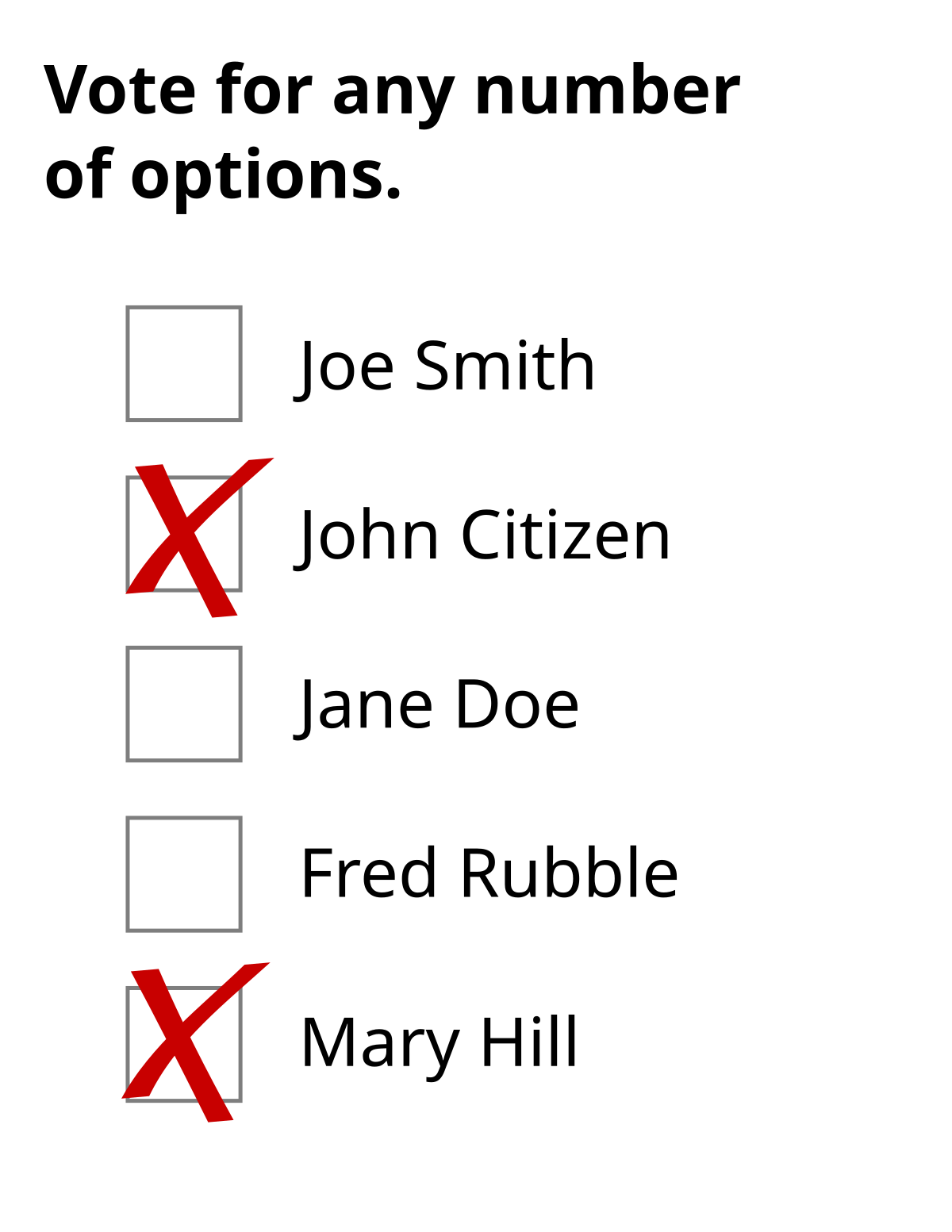That’s “Democratic” as in “Democracy”, not the political party.
As a systems guy, I tend to look at problems with our Democracy as being natural consequences of the systems where it is embedded. I have come to settle on a few aspects of our system that have outsized influence. These changes are all big. But they aren’t as big or well known as many other focus areas.
Approval Voting
I am a fan of approval voting. Under the approval voting system, you check a box for, or approve of, any candidate you can live with (i.e. “approve” of). You can vote for one candidate or many. The candidate who gets the most votes win. Note that if you vote for every candidate, you might as well not vote for all since you have added one vote equally to each candidate’s tally.
The system is easy to understand and easy to implement. I implemented in our book group eighteen years ago, and we’ve never looked back.

Let’s go back to the year 2000. Many people cast votes for Ralph Nader, but would have been fine with Al Gore. Approval voting lets them show that. The correct candidate would have won. Do you want to support libertarians or other third parties, but don’t want to throw away your vote? Under approval voting, you can support 3rd party candidates and truthfully show your support for them while also supporting a more realistic candidate (that is, they are from one of the major parties).
Another system is ranked voting, which is catching on in some states. That’s a good approach also. Any of these systems are better than what we have now. I was disgusted when the DCCC gave money to some extreme GOP candidates to better their changes in the general. It may have worked (maybe?), but it’s still an abomination. A system with that sort of perverse incentive needs to be changed. I like approval voting, but almost anything is an improvement over current state.
You should note that there is no ideal voting system. If you take certain basics how a voting system would work (e.g. “If every voter prefers candidate A over candidate B, candidate A should win.”) and put them together, you get logical paradoxes. This was the great work of Kenneth Arrow.